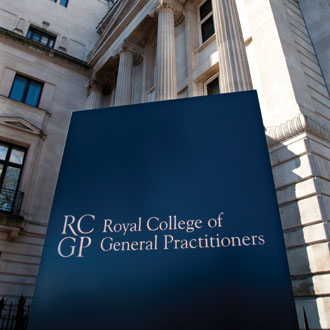The RCGP has produced a hard-hitting action plan with an exhaustive list of priorities that it wants the Northern Ireland Government to take on board, including increasing the number of trainees from 65 to 111.
In doing so, it is calling on the Government to set a target to increase the number of full-time equivalent GPs by 400 in the next five years, alongside policies that reduce GP bureaucracy levels, improve premises and free up GPs to develop innovative practice models.
The action plan, Delivering change for general practice: A strategy for improving patient care in Northern Ireland, represents the first time the RCGP has prepared a strategy of this kind.
It calls for:
- An urgent review into how bureaucracy can be reduced, including a review of the QOF system, which ‘limits the abilities of practices to expand their workforce’.
- GPs to be empowered to innovate through taking leadership courses and be given extra cash to set up GP federations.
- More new services provided outside of hospitals.
- GPs to be encouraged to undertake research.
- More practice nurses and more pharmacists to work with GPs.
- The building of new health and social care centres as ‘hubs’ to support smaller practices working from other premises.
- Improved IT systems.
- Greater access to diagnostic tests.
It reiterates its call for bumping up the proportion of the health budget spent on general practice to 11% from 8.3%.
Dr John O’Kelly, chair of the RCGP in Northern Ireland, said: ‘As a matter of priority, I urge the Northern Ireland Government to increase the number of GPs being trained by the Northern Ireland Medical and Dental Training Agency at Queen’s University Belfast from 65 to 111. An increase in the number of GPs will help deal with rising demand and allow more time to be spent with patients. Five or 10 minutes is not sufficient, especially for patients who have multiple and increasingly complex conditions.’
A spokesperson for the Department for Health, Social Services and Public Safety said: ‘Encouraging consideration of general practice as a career is a priority for DHSSPS. Over £36m is provided annually by the Department to provide support for education of undergraduate medical and dental students at the relevant schools within Queens University Belfast.
‘Work is ongoing with them to expand the exposure to general practice settings within the undergraduate medical curriculum as this is known to encourage students to opt for this as a career.’
In February, the BMA in Northern Ireland called for £33m a year in recurrent funding for to pay for extra GPs, more nurses and clerical staff, and improvements to premises.
Pulse October survey
Take our July 2025 survey to potentially win £1.000 worth of tokens













